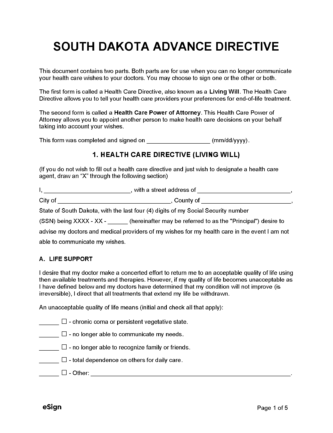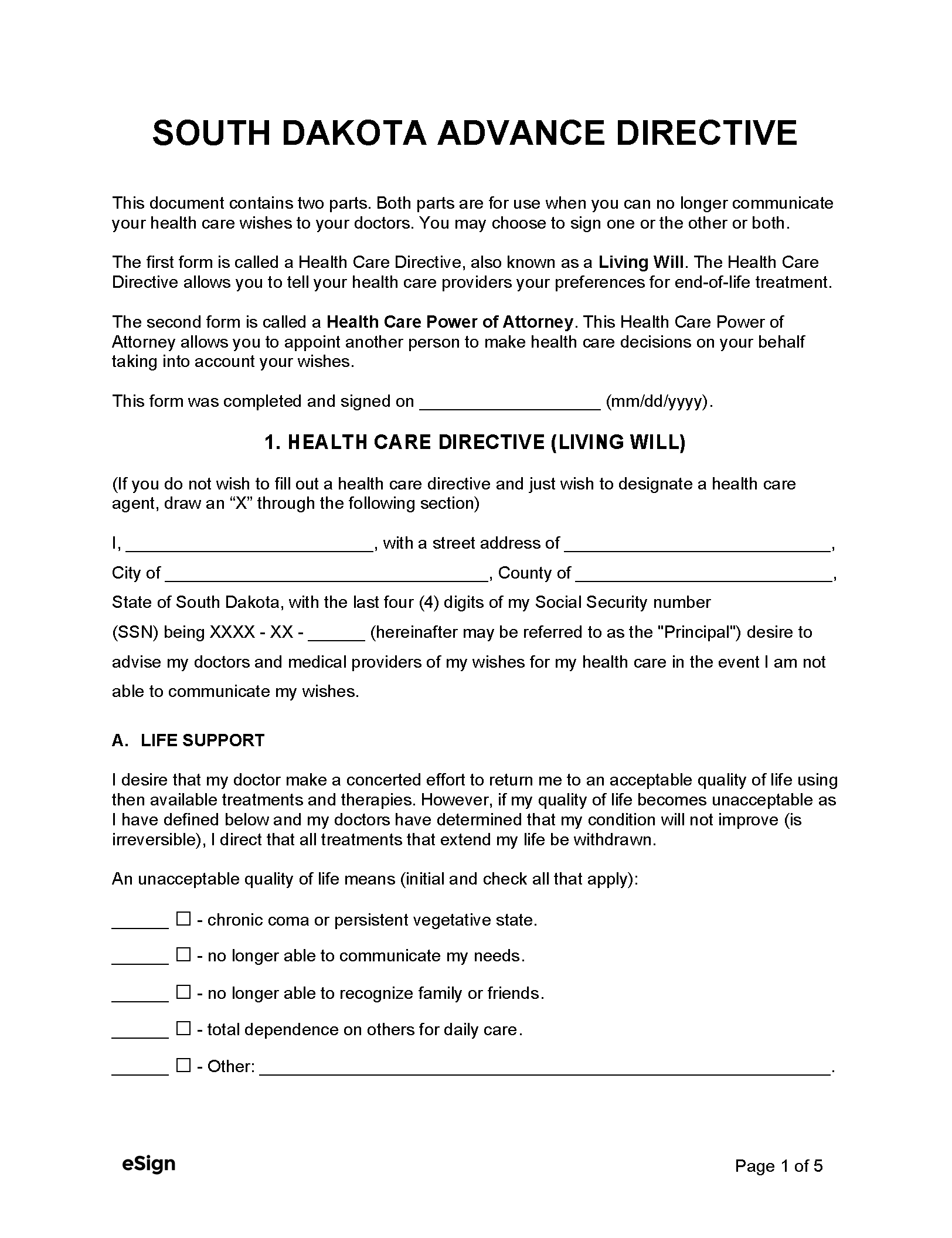Signing Requirements
State law requires that advance directives be notarized or signed by two adult witnesses.[1]
Advance Directive (Preview)
Revocation
An advance directive can be revoked by the principal in any manner, regardless of their mental or physical condition. A revocation becomes effective upon notifying the health care provider.[2]

